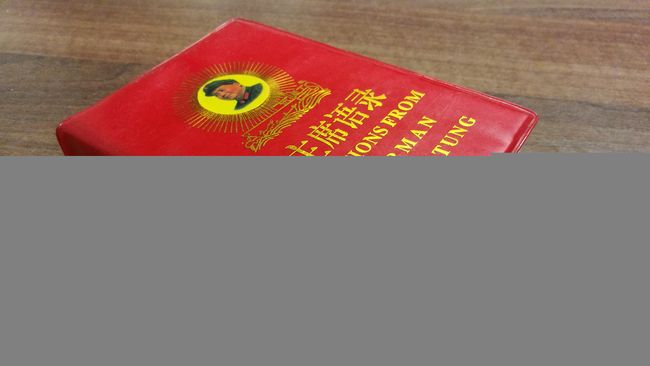- 华为OD机试 - 相对开音节 - 正则表达式(Python/JS/C/C++ 2024 E卷 100分)
哪 吒
华为od正则表达式python
华为OD机试2024E卷题库疯狂收录中,刷题点这里专栏导读本专栏收录于《华为OD机试真题(Python/JS/C/C++)》。刷的越多,抽中的概率越大,私信哪吒,备注华为OD,加入华为OD刷题交流群,每一题都有详细的答题思路、详细的代码注释、3个测试用例、为什么这道题采用XX算法、XX算法的适用场景,发现新题目,随时更新。一、题目描述相对开音节构成的结构为辅音+元音(aeiou)+辅音(r除外)+
- 华为OD机试 - 数列描述 - 动态规划(Python/JS/C/C++ 2024 B卷 100分)
哪 吒
华为od动态规划python
华为OD机试2024E卷题库疯狂收录中,刷题点这里专栏导读本专栏收录于《华为OD机试真题(Python/JS/C/C++)》。刷的越多,抽中的概率越大,私信哪吒,备注华为OD,加入华为OD刷题交流群,每一题都有详细的答题思路、详细的代码注释、3个测试用例、为什么这道题采用XX算法、XX算法的适用场景,发现新题目,随时更新。一、题目描述有一个数列a[N](N=60),从a[0]开始,每一项都是一个数
- 华为OD机试 - 输出单向链表中倒数第k个结点 - 双指针(Python/JS/C/C++ 2024 B卷 100分)
哪 吒
华为od链表python
华为OD机试2024E卷题库疯狂收录中,刷题点这里专栏导读本专栏收录于《华为OD机试真题(Python/JS/C/C++)》。刷的越多,抽中的概率越大,私信哪吒,备注华为OD,加入华为OD刷题交流群,每一题都有详细的答题思路、详细的代码注释、3个测试用例、为什么这道题采用XX算法、XX算法的适用场景,发现新题目,随时更新。一、题目描述输入一个单向链表,输出该链表中倒数第k个结点,链表的倒数第1个结
- 华为OD机试 - 图片整理(Python/JS/C/C++ 2024 B卷 100分)
哪 吒
华为odpythonjavascript
华为OD机试2024E卷题库疯狂收录中,刷题点这里专栏导读本专栏收录于《华为OD机试真题(Python/JS/C/C++)》。刷的越多,抽中的概率越大,私信哪吒,备注华为OD,加入华为OD刷题交流群,每一题都有详细的答题思路、详细的代码注释、3个测试用例、为什么这道题采用XX算法、XX算法的适用场景,发现新题目,随时更新。一、题目描述Lily上课时使用字母数字图片教小朋友们学习英语单词,每次都需要
- 华为OD机试 - 宜居星球改造计划 - 图的多源BFS(Python/JS/C/C++ 2023 B卷 100分)
哪 吒
华为od宽度优先python
华为OD机试2024E卷题库疯狂收录中,刷题点这里专栏导读本专栏收录于《华为OD机试真题(Python/JS/C/C++)》。刷的越多,抽中的概率越大,私信哪吒,备注华为OD,加入华为OD刷题交流群,每一题都有详细的答题思路、详细的代码注释、3个测试用例、为什么这道题采用XX算法、XX算法的适用场景,发现新题目,随时更新。一、题目描述2XXX年,人类通过对火星的大气进行宜居改造分析,使得火星已在理
- 华为OD机试 - 红黑图(Python/JS/C/C++ 2023 B卷100分)
哪 吒
华为odpythonjavascript
华为OD机试2024E卷题库疯狂收录中,刷题点这里专栏导读本专栏收录于《华为OD机试真题(Python/JS/C/C++)》。刷的越多,抽中的概率越大,私信哪吒,备注华为OD,加入华为OD刷题交流群,每一题都有详细的答题思路、详细的代码注释、3个测试用例、为什么这道题采用XX算法、XX算法的适用场景,发现新题目,随时更新。一、题目描述众所周知红黑树是一种平衡树,它最突出的特性就是不能有两个相邻的红
- 华为OD机试 - DNA序列(Python/JS/C/C++ 2023 B卷 100分)
哪 吒
华为odpythonjavascript
华为OD机试2024E卷题库疯狂收录中,刷题点这里专栏导读本专栏收录于《华为OD机试真题(Python/JS/C/C++)》。刷的越多,抽中的概率越大,私信哪吒,备注华为OD,加入华为OD刷题交流群,每一题都有详细的答题思路、详细的代码注释、3个测试用例、为什么这道题采用XX算法、XX算法的适用场景,发现新题目,随时更新。一、题目描述一个DNA序列由A/C/G/T四个字母的排列组合组成。G和C的比
- 华为OD机试 - 购买水果最便宜的方案 - 数组(Python/JS/C/C++ 2024 C卷 100分)
哪 吒
华为odpythonjavascript
华为OD机试2024E卷题库疯狂收录中,刷题点这里专栏导读本专栏收录于《华为OD机试真题(Python/JS/C/C++)》。刷的越多,抽中的概率越大,私信哪吒,备注华为OD,加入华为OD刷题交流群,每一题都有详细的答题思路、详细的代码注释、3个测试用例、为什么这道题采用XX算法、XX算法的适用场景,发现新题目,随时更新。一、题目描述有m个水果超市在1-n个小时的不同时间段提供不同价格的打折水果,
- 华为OD机试 - 寻找最富裕的小家庭(Python/JS/C/C++ 2024 D卷 100分)
哪 吒
华为odpythonjavascript
华为OD机试2024E卷题库疯狂收录中,刷题点这里专栏导读本专栏收录于《华为OD机试真题(Python/JS/C/C++)》。刷的越多,抽中的概率越大,私信哪吒,备注华为OD,加入华为OD刷题交流群,每一题都有详细的答题思路、详细的代码注释、3个测试用例、为什么这道题采用XX算法、XX算法的适用场景,发现新题目,随时更新。一、题目描述在一棵树中,每个节点代表一个家庭成员,节点的数字表示其个人的财富
- 国际电商仓发(FBT)业务深度研究报告:以TikTok为例
萧十一郎@
知识科普人工智能
目录一、引言1.1研究背景与目的1.2研究方法与数据来源二、国际电商仓发(FBT)业务概述2.1FBT业务定义与运作模式2.2FBT业务在国际电商中的地位与作用三、TikTokFBT业务案例分析3.1TikTokFBT业务发展历程3.2TikTokFBT业务服务内容与优势3.3TikTokFBT业务的市场策略与布局四、国际电商仓发(FBT)业务成功案例及经验借鉴4.1成功案例展示4.2经验总结与启
- B2143 进制转换
1101.01
算法c++
题目描述用递归算法将一个十进制整数X(1≤X≤109)转换成任意进制数M(2≤M≤16,M为整数)。输入格式一行两个数,第一个十进制整数X,第二个为进制M。输出格式输出结果。输入输出样例输入#1复制3116输出#1复制1F说明/提示样例解释。将十进制31转化为十六进制数。#includeusingnamespacestd;chars[16]={'0','1','2','3','4','5','6'
- 学习111
麋鹿叔叔
学习
项目名称项目简介主要功能技术原理GitHub地址browser-use智能浏览器工具,让AI像人类一样操作浏览器,实现网页自动化网页浏览与操作、多标签页管理、视觉识别与内容提取、操作记录与重复执行、自定义动作支持、主流LLM模型支持为大语言模型服务的创新Python工具库GitHubEkoFellouAI推出的生产就绪型JavaScript框架,基于自然语言驱动创建智能代理支持所有平台,提供统一便
- 【免费】2000-2019年各省地方财政企业所得税数据
2501_90487648
数据#省份省地方财政企业所得税
2000-2019年各省地方财政企业所得税数据1、时间:2000-2019年2、来源:国家统计局、统计年鉴3、指标:行政区划代码、地区、年份、地方财政企业所得税4、范围:31省5、指标说明:企业所得税是对企业的利润征收的一种税种,是地方财政收入的重要组成部分之一。企业所得税在地方财政中占有重要位置,通过合理的税收政策和管理,能够有效促进地方经济的健康发展与财政收入的增加。5、下载链接:2000-2
- 3.19学习总结
2402_88131930
学习
学习了Java中的面向对象的知识点完成一道算法题,找树左下角的值,错误的以为左下角只能是最底层的左节点,但指的是最底层最左边的节点
- 【从零开始学习JAVA】异常体系介绍
Cools0613
从0开始学Java学习
前言:本文我们将为大家介绍一下异常的整个体系,而我们学习异常,不是为了敲代码的时候不出异常,而是为了能够熟练的处理异常,如何解决代码中的异常。异常的两大分类:我们就以这张图作为线索来详细介绍一下Java中的异常:1.Exceptions(异常)在Java中,Exception(异常)是一种表示非致命错误或异常情况的类或接口。Exception通常是由应用程序引发的,可以被程序员捕获、处理或抛出。E
- k8s主要控制器简述(一)ReplicaSet与Deployment
小刘爱喇石( ˝ᗢ̈˝ )
kubernetes容器云原生
目录一、ReplicaSet关键特性示例解释支持的Operator二、Deployment1.声明式更新示例2.滚动更新示例3.回滚示例4.ReplicaSet管理示例5.自动恢复示例6.扩展和缩容示例示例一、ReplicaSetReplicaSet是Kubernetes中的一个核心控制器,用于确保指定数量的Pod副本始终处于运行状态。它的主要职责是维护一组稳定的Pod副本,确保在任何时候都有指定
- 使用LangChain实现基于LLM和RAG的PDF问答系统
张同学吧
langchain语言模型
目录前言一.大语言模型(LLM)1.什么是LLM?2.LLM的能力与特点二、增强检索生成(RAG)三.什么是LangChain?1.LangChain的核心功能2.LangChain的优势3.LangChain的应用场景4.总结四.使用LangChain实现基于PDF的问答系统前言本文将介绍LLM和RAG的基本概念,并通过一个实际的代码示例,展示如何使用LangChain构建一个基于PDF文档的问
- 基于ChatGPT、GIS与Python机器学习的地质灾害风险评估、易发性分析、信息化建库及灾后重建高级实践
weixin_贾
防洪评价风险评估滑坡泥石流地质灾害
第一章、ChatGPT、DeepSeek大语言模型提示词与地质灾害基础及平台介绍【基础实践篇】1、什么是大模型?大模型(LargeLanguageModel,LLM)是一种基于深度学习技术的大规模自然语言处理模型。代表性大模型:GPT-4、BERT、T5、ChatGPT等。特点:多任务能力:可以完成文本生成、分类、翻译、问答等任务。上下文理解:能理解复杂的上下文信息。广泛适配性:适合科研、教育、行
- 程序员学商务英语之Don‘t jinx it、l have a half mind to do sth、Don‘t change the subject、Quality over quantity..
李匠2024
英文
1463-Don'tjinxit.-别鸟鸦嘴A:Whatifitrainstheweekend?Youknow,theweather'sbeenchangeablethesedays!如果这个周末下雨怎么办?你知道,这些天的天气变化无常!B:Don'tiinxit.i'vespentalotoftimepreparingforthiscamping.lhopeitstaysfineforthewe
- AI 赋能应急管理:ChatGPT、DeepSeek、Grok 的应用探索
一ge科研小菜菜
人工智能人工智能
个人主页:一ge科研小菜鸡-CSDN博客期待您的关注1.引言随着人工智能(AI)技术的快速发展,大语言模型(LLM)在应急管理领域的应用逐步扩大。ChatGPT、DeepSeek、Grok等AI模型凭借强大的文本处理、数据分析和推理能力,可为灾害预警、应急响应、风险评估等提供高效支持。本文将对比三大AI模型在应急管理中的优势,并探讨其在未来智能化应急管理体系中的应用前景。2.应急管理中的核心挑战应
- 前端如何实现一个五星评价,鼠标滑动,前边星星颜色的变黄,后边的不变;
修心光
前端
直接上代码.star-rating{display:flex;padding:10px0;}.star{position:relative;width:40px;height:40px;}.half{position:absolute;top:0;width:20px;height:40px;overflow:hidden;font-size:40px;color:#e0e0e0;cursor:p
- cmake makefile cmakelists.txt的区别和联系
YRr YRr
CMakec++开发语言cmake
cmakemakefilecmakelists.txt的区别和联系理解CMake、Makefile和CMakeLists.txt的区别和联系,可以帮助我们更好地管理和构建C/C++项目。Makefile(GNUMake):定义与作用:Makefile是一种文本文件,通常用于指定如何编译和链接源代码以生成可执行文件或库文件。它包含了一系列规则(rules),每个规则指定了如何生成一个或多个目标文件(
- Git如何将一个分支上的修改转移到另一个分支
风继续吹..
Git基本指令git
在我们使用git进行版本控制时,当代码写错分支,怎么将这些修改转移到正确的分支上去呢?这时,我们可以使用gitstath命令来暂存我们的修改,然后再切换到其他分支未commit(提交)操作时1.先将修改存入暂存区gitadd.2.把暂存区内的修改存储起来gitstash3.切换到正确的分支gitcheckoutdev4.将存储的修改取出来gitstashpop已commit(提交)操作时需要撤回c
- DeepSeek-R1 API评测深度解析:揭秘7大常见误区
耶耶Norsea
网络杂烩服务器网络运维
摘要随着SiliconCloud等平台推出DeepSeek-R1服务,市场涌现出大量关于API评测的内容。然而,这些评测中存在7个常见误区,如测试方法缺陷和内容质量参差不齐等问题,影响了用户对DeepSeek-R1的准确理解。本文旨在揭示这些问题,帮助用户更全面地了解该服务。关键词DeepSeek-R1,API评测,常见误区,SiliconCloud,内容质量一、一级目录11.1DeepSeek-
- DeepSeek的崛起:2025新春国产AI模型的全球影响力
耶耶Norsea
网络杂烩人工智能百度
摘要在2025年新春之际,国产AI模型DeepSeek以现象级的姿态迅速崛起,凭借免费、易用及高性能的特点,吸引了全球科技界的广泛关注。这款大型人工智能模型不仅展现了国产技术的实力,还为用户提供了高效便捷的使用体验,成为行业内的焦点。关键词DeepSeek崛起,2025新春,国产AI模型,免费易用,高性能特点一、国产AI的崭新篇章1.1DeepSeek的诞生背景在2025年新春之际,DeepSee
- 如何使用idea 连接达梦数据库?
大大怪~将军
intellij-idea数据库mybatis
1:首先打开idea,点击右上角的数据库2:将达梦数据库的jar包配置一下(一般在driver/jdbc目录下)3:点击应用或者确定之后,重新点击idea右侧的数据库4:连接地址:jdbc:dm://127.0.0.1:5236/DMSERVER?zeroDateTimeBehavior=convertToNull&useUnicode=true&characterEncoding=utf-8
- 精准电源管理:LDO HX75XX系列的技术参数详解
华芯邦
电源管理芯片科技
在当今快速发展的电子时代,电子设备的性能与稳定性愈发受到重视。而电源管理作为电子设备的核心部分,其重要性不言而喻。华芯邦电源管理芯片其中的低压差线性稳压器LDOHX75XX系列便是在电源管理领域的代表。一、产品概述LDOHX75XX系列是一款高性能低压差线性稳压器,专为满足各种便携式电子设备、电池供电设备以及噪声敏感应用的需求而设计。该系列产品具有超低压差、高稳定性、低功耗等特点,能够在输入电压变
- HX1117稳压芯片的热设计考虑因素
华芯邦
电源管理芯片单片机嵌入式硬件科技
如何判定线性稳压器是否存在过热问题?工作温度范围的重要性影响多方面因素华芯邦HX1117稳压芯片凭借其低压差、高精度输出电压、热保护和短路保护等特性,成为电子领域中广泛应用的稳压器之一。无论是在计算机主板、通信设备、工业自动化系统还是消费电子产品中,HX1117都能提供可靠的电源管理解决方案。在设计和使用过程中,合理选择输入输出电容、注意散热和地线布局,可以进一步提升其性能和可靠性。稳压芯片在现代
- 栈 力扣hot100热门面试算法题 面试基础 核心思路 背题 滑动窗口最大值 字符串解码 每日温度 柱状图中最大矩形 有效的括号 最小栈
尘土哥
算法leetcode面试
栈栈的核心思路:每个数都要进栈or队列,但是要及时维护栈or队列,当某元素没有存在的意义时就删掉,关键是思考栈尾什么时候有用与没用。滑动窗口最大值https://leetcode.cn/problems/sliding-window-maximum/题解链接https://leetcode.cn/problems/sliding-window-maximum/solutions/3067170/d
- ONE Deep模型:LG AI Research的开源突破
耶耶Norsea
网络杂烩自动化
摘要由LGAIResearch开发的ONEDeep系列开源AI模型,参数规模覆盖2.4亿至32亿。经评估,2.4B参数规模的ONEDeep模型在性能上优于同类其他模型,展现出显著优势。这一成果为AI技术的应用与研究提供了强有力的支持。关键词ONEDeep模型,开源AI模型,LGAIResearch,2.4B参数,性能优越一、ONEDeep模型概述1.1ONEDeep模型的开发背景在当今人工智能技术
- java短路运算符和逻辑运算符的区别
3213213333332132
java基础
/*
* 逻辑运算符——不论是什么条件都要执行左右两边代码
* 短路运算符——我认为在底层就是利用物理电路的“并联”和“串联”实现的
* 原理很简单,并联电路代表短路或(||),串联电路代表短路与(&&)。
*
* 并联电路两个开关只要有一个开关闭合,电路就会通。
* 类似于短路或(||),只要有其中一个为true(开关闭合)是
- Java异常那些不得不说的事
白糖_
javaexception
一、在finally块中做数据回收操作
比如数据库连接都是很宝贵的,所以最好在finally中关闭连接。
JDBCAgent jdbc = new JDBCAgent();
try{
jdbc.excute("select * from ctp_log");
}catch(SQLException e){
...
}finally{
jdbc.close();
- utf-8与utf-8(无BOM)的区别
dcj3sjt126com
PHP
BOM——Byte Order Mark,就是字节序标记 在UCS 编码中有一个叫做"ZERO WIDTH NO-BREAK SPACE"的字符,它的编码是FEFF。而FFFE在UCS中是不存在的字符,所以不应该出现在实际传输中。UCS规范建议我们在传输字节流前,先传输 字符"ZERO WIDTH NO-BREAK SPACE"。这样如
- JAVA Annotation之定义篇
周凡杨
java注解annotation入门注释
Annotation: 译为注释或注解
An annotation, in the Java computer programming language, is a form of syntactic metadata that can be added to Java source code. Classes, methods, variables, pa
- tomcat的多域名、虚拟主机配置
g21121
tomcat
众所周知apache可以配置多域名和虚拟主机,而且配置起来比较简单,但是项目用到的是tomcat,配来配去总是不成功。查了些资料才总算可以,下面就跟大家分享下经验。
很多朋友搜索的内容基本是告诉我们这么配置:
在Engine标签下增面积Host标签,如下:
<Host name="www.site1.com" appBase="webapps"
- Linux SSH 错误解析(Capistrano 的cap 访问错误 Permission )
510888780
linuxcapistrano
1.ssh -v
[email protected] 出现
Permission denied (publickey,gssapi-keyex,gssapi-with-mic,password).
错误
运行状况如下:
OpenSSH_5.3p1, OpenSSL 1.0.1e-fips 11 Feb 2013
debug1: Reading configuratio
- log4j的用法
Harry642
javalog4j
一、前言: log4j 是一个开放源码项目,是广泛使用的以Java编写的日志记录包。由于log4j出色的表现, 当时在log4j完成时,log4j开发组织曾建议sun在jdk1.4中用log4j取代jdk1.4 的日志工具类,但当时jdk1.4已接近完成,所以sun拒绝使用log4j,当在java开发中
- mysql、sqlserver、oracle分页,java分页统一接口实现
aijuans
oraclejave
定义:pageStart 起始页,pageEnd 终止页,pageSize页面容量
oracle分页:
select * from ( select mytable.*,rownum num from (实际传的SQL) where rownum<=pageEnd) where num>=pageStart
sqlServer分页:
- Hessian 简单例子
antlove
javaWebservicehessian
hello.hessian.MyCar.java
package hessian.pojo;
import java.io.Serializable;
public class MyCar implements Serializable {
private static final long serialVersionUID = 473690540190845543
- 数据库对象的同义词和序列
百合不是茶
sql序列同义词ORACLE权限
回顾简单的数据库权限等命令;
解锁用户和锁定用户
alter user scott account lock/unlock;
//system下查看系统中的用户
select * dba_users;
//创建用户名和密码
create user wj identified by wj;
identified by
//授予连接权和建表权
grant connect to
- 使用Powermock和mockito测试静态方法
bijian1013
持续集成单元测试mockitoPowermock
实例:
package com.bijian.study;
import static org.junit.Assert.assertEquals;
import java.io.IOException;
import org.junit.Before;
import org.junit.Test;
import or
- 精通Oracle10编程SQL(6)访问ORACLE
bijian1013
oracle数据库plsql
/*
*访问ORACLE
*/
--检索单行数据
--使用标量变量接收数据
DECLARE
v_ename emp.ename%TYPE;
v_sal emp.sal%TYPE;
BEGIN
select ename,sal into v_ename,v_sal
from emp where empno=&no;
dbms_output.pu
- 【Nginx四】Nginx作为HTTP负载均衡服务器
bit1129
nginx
Nginx的另一个常用的功能是作为负载均衡服务器。一个典型的web应用系统,通过负载均衡服务器,可以使得应用有多台后端服务器来响应客户端的请求。一个应用配置多台后端服务器,可以带来很多好处:
负载均衡的好处
增加可用资源
增加吞吐量
加快响应速度,降低延时
出错的重试验机制
Nginx主要支持三种均衡算法:
round-robin
l
- jquery-validation备忘
白糖_
jquerycssF#Firebug
留点学习jquery validation总结的代码:
function checkForm(){
validator = $("#commentForm").validate({// #formId为需要进行验证的表单ID
errorElement :"span",// 使用"div"标签标记错误, 默认:&
- solr限制admin界面访问(端口限制和http授权限制)
ronin47
限定Ip访问
solr的管理界面可以帮助我们做很多事情,但是把solr程序放到公网之后就要限制对admin的访问了。
可以通过tomcat的http基本授权来做限制,也可以通过iptables防火墙来限制。
我们先看如何通过tomcat配置http授权限制。
第一步: 在tomcat的conf/tomcat-users.xml文件中添加管理用户,比如:
<userusername="ad
- 多线程-用JAVA写一个多线程程序,写四个线程,其中二个对一个变量加1,另外二个对一个变量减1
bylijinnan
java多线程
public class IncDecThread {
private int j=10;
/*
* 题目:用JAVA写一个多线程程序,写四个线程,其中二个对一个变量加1,另外二个对一个变量减1
* 两个问题:
* 1、线程同步--synchronized
* 2、线程之间如何共享同一个j变量--内部类
*/
public static
- 买房历程
cfyme
2015-06-21: 万科未来城,看房子
2015-06-26: 办理贷款手续,贷款73万,贷款利率5.65=5.3675
2015-06-27: 房子首付,签完合同
2015-06-28,央行宣布降息 0.25,就2天的时间差啊,没赶上。
首付,老婆找他的小姐妹接了5万,另外几个朋友借了1-
- [军事与科技]制造大型太空战舰的前奏
comsci
制造
天气热了........空调和电扇要准备好..........
最近,世界形势日趋复杂化,战争的阴影开始覆盖全世界..........
所以,我们不得不关
- dateformat
dai_lm
DateFormat
"Symbol Meaning Presentation Ex."
"------ ------- ------------ ----"
"G era designator (Text) AD"
"y year
- Hadoop如何实现关联计算
datamachine
mapreducehadoop关联计算
选择Hadoop,低成本和高扩展性是主要原因,但但它的开发效率实在无法让人满意。
以关联计算为例。
假设:HDFS上有2个文件,分别是客户信息和订单信息,customerID是它们之间的关联字段。如何进行关联计算,以便将客户名称添加到订单列表中?
&nbs
- 用户模型中修改用户信息时,密码是如何处理的
dcj3sjt126com
yii
当我添加或修改用户记录的时候对于处理确认密码我遇到了一些麻烦,所有我想分享一下我是怎么处理的。
场景是使用的基本的那些(系统自带),你需要有一个数据表(user)并且表中有一个密码字段(password),它使用 sha1、md5或其他加密方式加密用户密码。
面是它的工作流程: 当创建用户的时候密码需要加密并且保存,但当修改用户记录时如果使用同样的场景我们最终就会把用户加密过的密码再次加密,这
- 中文 iOS/Mac 开发博客列表
dcj3sjt126com
Blog
本博客列表会不断更新维护,如果有推荐的博客,请到此处提交博客信息。
本博客列表涉及的文章内容支持 定制化Google搜索,特别感谢 JeOam 提供并帮助更新。
本博客列表也提供同步更新的OPML文件(下载OPML文件),可供导入到例如feedly等第三方定阅工具中,特别感谢 lcepy 提供自动转换脚本。这里有导入教程。
- js去除空格,去除左右两端的空格
蕃薯耀
去除左右两端的空格js去掉所有空格js去除空格
js去除空格,去除左右两端的空格
>>>>>>>>>>>>>>>>>>>>>>>>>>>>>>>>>>>>>>>>>>>>>&g
- SpringMVC4零配置--web.xml
hanqunfeng
springmvc4
servlet3.0+规范后,允许servlet,filter,listener不必声明在web.xml中,而是以硬编码的方式存在,实现容器的零配置。
ServletContainerInitializer:启动容器时负责加载相关配置
package javax.servlet;
import java.util.Set;
public interface ServletContainer
- 《开源框架那些事儿21》:巧借力与借巧力
j2eetop
框架UI
同样做前端UI,为什么有人花了一点力气,就可以做好?而有的人费尽全力,仍然错误百出?我们可以先看看几个故事。
故事1:巧借力,乌鸦也可以吃核桃
有一个盛产核桃的村子,每年秋末冬初,成群的乌鸦总会来到这里,到果园里捡拾那些被果农们遗落的核桃。
核桃仁虽然美味,但是外壳那么坚硬,乌鸦怎么才能吃到呢?原来乌鸦先把核桃叼起,然后飞到高高的树枝上,再将核桃摔下去,核桃落到坚硬的地面上,被撞破了,于是,
- JQuery EasyUI 验证扩展
可怜的猫
jqueryeasyui验证
最近项目中用到了前端框架-- EasyUI,在做校验的时候会涉及到很多需要自定义的内容,现把常用的验证方式总结出来,留待后用。
以下内容只需要在公用js中添加即可。
使用类似于如下:
<input class="easyui-textbox" name="mobile" id="mobile&
- 架构师之httpurlconnection----------读取和发送(流读取效率通用类)
nannan408
1.前言.
如题.
2.代码.
/*
* Copyright (c) 2015, S.F. Express Inc. All rights reserved.
*/
package com.test.test.test.send;
import java.io.IOException;
import java.io.InputStream
- Jquery性能优化
r361251
JavaScriptjquery
一、注意定义jQuery变量的时候添加var关键字
这个不仅仅是jQuery,所有javascript开发过程中,都需要注意,请一定不要定义成如下:
$loading = $('#loading'); //这个是全局定义,不知道哪里位置倒霉引用了相同的变量名,就会郁闷至死的
二、请使用一个var来定义变量
如果你使用多个变量的话,请如下方式定义:
. 代码如下:
var page
- 在eclipse项目中使用maven管理依赖
tjj006
eclipsemaven
概览:
如何导入maven项目至eclipse中
建立自有Maven Java类库服务器
建立符合maven代码库标准的自定义类库
Maven在管理Java类库方面有巨大的优势,像白衣所说就是非常“环保”。
我们平时用IDE开发都是把所需要的类库一股脑的全丢到项目目录下,然后全部添加到ide的构建路径中,如果用了SVN/CVS,这样会很容易就 把
- 中国天气网省市级联页面
x125858805
级联
1、页面及级联js
<%@ page language="java" import="java.util.*" pageEncoding="UTF-8"%>
<!DOCTYPE HTML PUBLIC "-//W3C//DTD HTML 4.01 Transitional//EN">
&l
